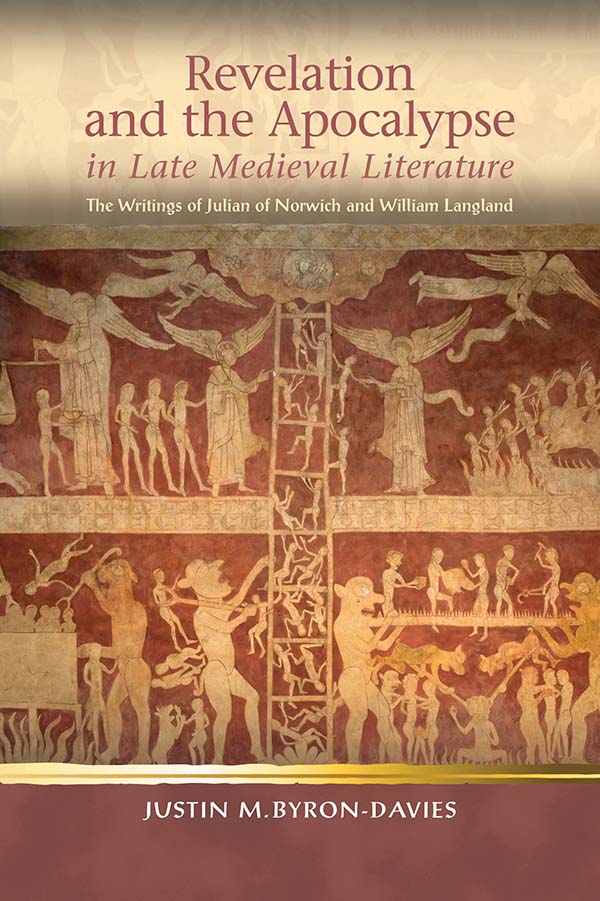Revelation and the Apocalypse in Late Medieval Literature
The Writings of Julian of Norwich and William Langland
Awdur(on) Justin M. Byron-Davies
Iaith: Saesneg
Dosbarthiad(au): Literary Criticism, Religion
Cyfres: Religion and Culture in the Middle Ages
- Chwefror 2020 · 288 tudalen ·234x156mm
- · Clawr Caled - 9781786835161
- · eLyfr - pdf - 9781786835178
- · eLyfr - epub - 9781786835185
This interdisciplinary book breaks new ground by systematically examining ways in which two of the most important works of late medieval English literature – Julian of Norwich’s Revelations of Love and William Langland’s Piers Plowman – arose from engagement with the biblical Apocalypse and exegetical writings. The study contends that the exegetical approach to the Apocalypse is more extensive in Julian’s Revelations and more sophisticated in Langland’s Piers Plowman than previously thought, whether through a primary textual influence or a discernible Joachite influence. The author considers the implications of areas of confluence, which both writers reapply and emphasise – such as spiritual warfare and other salient thematic elements of the Apocalypse, gender issues, and Julian’s explications of her vision of the soul as city of Christ and all believers (the fulcrum of her eschatologically-focused Aristotelian and Augustinian influenced pneumatology). The liberal soteriology implicit in Julian’s ‘Parable of the Lord and the Servant’ is specifically explored in its Johannine and Scotistic Christological emphasis, the absent vision of hell, and the eschatological ‘grete dede’, vis-à-vis a possible critique of the prevalent hermeneutic.


